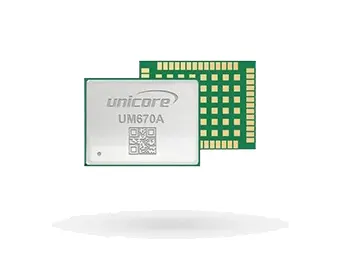China took one step forward in its ambition to build an independent global navigation network capable of rivaling foreign congeneric systems with the successful launch of a new orbiter into space early Sunday morning.
Boosted by a Long-March-3III carrier rocket into a geostationary orbit from the Xichang Satellite Launch Center, it was the third orbiter China has launched for the network, also known as Beidou, or COMPASS system.
It will join another two already in orbits to form a network which will eventually have a total of 35 satellites, capable of providing global navigation service to users around the world around 2020.
The new orbiter and the carrier rocket were researched and developed by Chinese Aerospace Science and Technology Corporation and Chinese Academy of Carrier Rocket Technology respectively.
The network will have five satellites in geostationary orbit and another 30 in non-geostationary orbits, according to a plan for the COMPASS system.
According to the plan, the system will firstly provide navigation, time signal and short message services in the Asia and Pacific region around 2012.
The COMPASS system will provide both open and authorized services, according to China's satellite navigation project center.
The open service will be free of charge for the system's users within service area with a resolution of 10 meters for positioning, an accuracy of 10 nanosecond for time signal and an accuracy of 0.2 meter per second for speed measurement.
The authorized service will provide more accurate services for authorized users.
China started to build up its own satellite navigation system to break its dependence on the U.S. Global Positioning System (GPS) in 2000 when it sent two orbiters as a double-satellite experimental positioning system, known as the Beidou system.
The Beidou system, China's first-generation satellite navigation and positioning network, made the country the third in the world after the U.S. and Russia to have an independent satellite navigation system.
The original Beidou system provide regional service for telecom, transport and disaster relief within the country, and has played important roles especially in the Beijing Olympics and relief work for the 8.0-magnitude Wenchuan earthquake in May 2008.
The country started to upgrade the Beidou into the second-generation system by launching two new orbiters into space in 2007 and 2009 respectively.
A statement from the COMPASS system's special management office said that China will make its own global navigation system compatible and interoperable with other international competitors, including the U.S. GPS system, the EU's Galileo Positioning System and Russia’s Global Navigation Satellite System (GLONASS).
The compatibility and interoperability, under the framework of the International Committee on Global Navigation Satellite Systems (ICG) and International Telecommunication Union (ITU), will make all users benefit from the progress of the satellite navigation's development, it said.
China is willing to cooperate with other countries to improve the COMPASS system's compatibility and interoperability with other satellite navigation systems and promote an all-round application of the system's services, the statement said.
Sun Jiadong, an academician with the Chinese Academy of Sciences and the COMPASS system’s chief designer, told Xinhua after the third orbiter's launch that the system would play a major role in providing services for national security, environment, traffic, logistics and other economic activities.
"There is nothing could not be accomplished by the COMPASS system," said the 80-year-old Sun at the launch center, who was crowned China's top science and technology award by President Hu Jintao last week.
The Beidou experimental system with two satellites in geostationary orbit completed in 2000 was the first successful stage which helped Chinese scientists gain lots of experience in constructing the COMPASS system, Sun said.
According to him, the blueprint to build China's own global navigation satellite system in three stages was initiated in the 1980s and 1990s.
"The successful launch of the COMPASS system's third orbiter today marked a substantial step for the system to function within the Asia Pacific region by 2012 as the second stage," he said.
With promising application in social and economic activities, the COMPASS system will also boost the development of China's information technology, the chief designer said.
"In a few years, people would find some new application of the COMPASS system that they have never imagined before."
With the steady progress to add launch satellites into space, the development of ground-based supporting facilities and equipment to explore the system's application is comparatively limited and should be considered as priority, the space expert said.
Civilian application of the U.S. GPS system in China is limited. Only a few companies sell GPS maps for portable or vehicle-mounted positioning and navigation devices.
Sun proposed that the government should issue regulations and policies to encourage more Chinese enterprises to participate in the development of the system's application chain so as to make maximum possible use of those satellites.

 EN
EN  ja
ja  ko
ko  fr
fr  de
de  es
es  it
it  pt
pt  vi
vi  sv
sv  ms
ms  CN
CN







